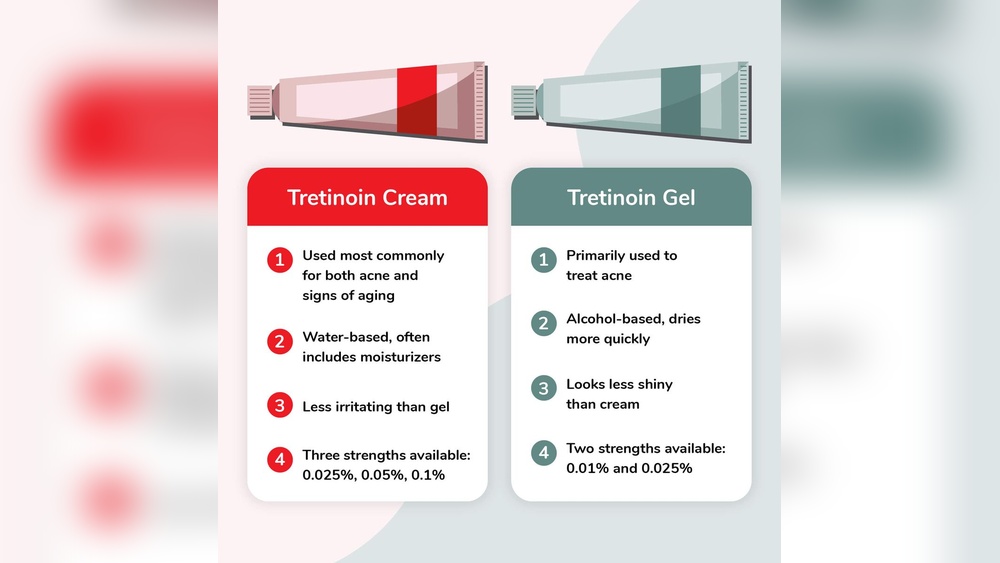Have you ever grabbed your body cream and wondered if it’s safe to use on your face? It’s a common question because your skin on the face is different from the rest of your body.
Using the wrong product can cause irritation, breakouts, or dryness. But what if that body cream could actually work wonders for your face? Keep reading to find out when it’s okay to use body cream on your face, what to watch out for, and how to make the best choice for your skin’s health and glow.
You’ll be surprised by what you learn!

Credit: plumgoodness.com
Differences Between Body Cream And Face Cream
Body cream and face cream serve different purposes and are designed with unique features. Understanding their differences helps in choosing the right product for your skin. Using the wrong cream might cause discomfort or skin issues.
Each type targets specific skin needs and areas. Face skin is delicate and more exposed to the environment. Body skin is thicker and less sensitive. These factors influence the cream’s makeup and use.
Formulation And Ingredients
Face creams have gentle ingredients. They avoid harsh chemicals and heavy fragrances. These could irritate facial skin or cause breakouts. Body creams contain richer oils and heavier ingredients. They focus on deep hydration for tougher skin areas.
Skin Sensitivity Variations
Facial skin is more sensitive than body skin. It reacts easily to strong products. Body creams might clog pores on the face. They can cause redness or irritation. Face creams are made to calm and protect sensitive skin.
Moisturizing Needs
Face skin needs lighter hydration to avoid greasiness. Body skin requires intense moisture to stay soft. Body creams often have thick textures to lock in moisture. Face creams use lightweight formulas to keep skin balanced and fresh.
Potential Risks Of Using Body Cream On Face
Using body cream on your face can seem like a quick solution. Many people try it without knowing the risks. The skin on your face is different from the skin on your body. Body creams are thicker and made for tougher skin. Using them on your face may cause problems. Below are the main risks you should know.
Clogged Pores And Breakouts
Body creams often have heavy oils and ingredients. These can block pores on your face. Blocked pores lead to pimples and blackheads. Your facial skin is more sensitive to these ingredients. Regular use may cause frequent breakouts and oily skin.
Irritation And Allergic Reactions
Body creams may contain fragrances and chemicals. These can irritate delicate facial skin. Redness, itching, and burning are common signs. Some people may develop allergic reactions. The face needs gentle products to avoid these issues.
Long-term Skin Damage
Using the wrong cream for a long time can harm your skin. Body creams can disrupt the natural balance of facial skin. This may cause dryness, redness, or uneven texture. Over time, your skin may look dull and unhealthy. Protect your face with products made just for it.
When Using Body Cream On Face Is Acceptable
Using body cream on your face can sometimes be okay. It depends on the type of cream and your skin’s needs. The skin on your face is delicate and different from the skin on your body. So, choosing the right cream is very important.
Some body creams are mild enough for facial use. They can help when your face feels dry or irritated. Still, you must be careful and test the cream before regular use. Knowing when and how to use body cream on your face keeps your skin healthy.
Choosing Gentle Body Creams
Select body creams with simple, natural ingredients. Avoid creams with strong fragrances or harsh chemicals. Look for creams labeled as “suitable for sensitive skin” or “hypoallergenic.” These are usually gentler and safer for your face.
Products with moisturizing ingredients like glycerin, shea butter, or aloe vera work well. Avoid thick, greasy creams that can clog pores. Light formulas absorb quickly and reduce the chance of breakouts.
Patch Testing Tips
Always do a patch test before applying body cream on your face. Apply a small amount on your wrist or behind your ear. Wait 24 hours and watch for redness, itching, or swelling. If no reaction occurs, the cream is safer to use on your face.
Patch testing helps prevent allergic reactions and irritation. It is a simple step that saves your skin from damage. Never skip this test, especially with new or unknown products.
Situations For Occasional Use
Using body cream on your face occasionally is fine in certain cases. For example, if your facial moisturizer runs out, a gentle body cream can replace it temporarily. Also, during very dry or cold weather, body cream can provide extra moisture.
Some people use body cream on their face after shaving or sun exposure to soothe the skin. Just avoid regular use of heavy or strong body creams. Stick to light creams and watch your skin’s response carefully.
Expert Tips For Facial Skincare
Taking care of your face requires special attention and the right approach. Experts share simple tips that help keep your skin healthy and glowing. These tips focus on choosing the right products, applying them properly, and protecting your skin from the sun. Follow these steps to improve your facial skincare routine safely and effectively.
Selecting Suitable Products
Choose products made for your facial skin type. Face skin is more delicate than body skin. Body creams can be too heavy and cause breakouts on the face. Look for creams labeled “non-comedogenic” or “for face use.” These are less likely to clog pores.
Use gentle ingredients that do not irritate. Avoid products with strong fragrances or harsh chemicals. Pick moisturizers with soothing elements like aloe or chamomile. This helps keep your skin calm and hydrated.
Layering And Application Techniques
Apply skincare products in the right order. Start with a clean face. Use toner or serum first if you use them. Then apply moisturizer or cream. This helps your skin absorb products better.
Use a small amount of cream. Gently pat or massage it into your skin. Avoid rubbing hard. Be careful around the eyes. This prevents irritation and helps products work well.
Importance Of Sun Protection
Sun protection is key for healthy skin. Use sunscreen every day, even on cloudy days. Choose a broad-spectrum sunscreen with at least SPF 30. This protects your skin from harmful UVA and UVB rays.
Apply sunscreen after moisturizer. Reapply every two hours if you are outside. Wearing hats and sunglasses adds extra protection. This prevents skin damage and early aging.
Surprising Facts About Skin Care Products
Skin care products are often surrounded by many surprising facts. People believe many things about creams and lotions that are not always true. Understanding these facts helps you make better choices for your skin.
Many wonder if body cream can be used on the face. The answer depends on several factors. Knowing about the products and ingredients is important before switching creams.
Myths About Body And Face Creams
One common myth is that body cream is the same as face cream. They are made differently. Face creams are lighter and made for sensitive skin. Body creams are thicker and designed for tougher skin.
Another myth is that using body cream on the face will cause no harm. This is not true for all skin types. Some body creams can clog pores and cause breakouts on the face.
Multi-purpose Products
Some creams are made for both face and body. These products usually have gentle ingredients. They can moisturize without causing irritation. Always check the label for instructions.
Using one product for multiple areas can save time and money. Yet, it is best to test a small skin patch first. This helps avoid allergic reactions or redness.
Impact Of Ingredients On Skin Types
Ingredients affect skin differently. For example, oils in body creams can be too heavy for oily or acne-prone faces. Ingredients like hyaluronic acid are good for dry skin on the face.
Sensitive skin needs creams without fragrances or harsh chemicals. Reading ingredient lists helps find the right product. Choose creams that match your skin type for best results.

Credit: lifehacker.com

Credit: glamourdusk.com
Frequently Asked Questions
Can Body Cream Cause Face Skin Irritation?
Yes, body creams may irritate facial skin due to stronger ingredients. Facial skin is thinner and more sensitive. Always patch test before applying body cream on your face.
Is Body Cream Safe For Daily Facial Use?
Generally, body creams are not formulated for daily facial use. They can clog pores and cause breakouts. Use creams specifically designed for facial skin for best results.
How Is Face Cream Different From Body Cream?
Face creams are lighter and non-comedogenic, made for delicate facial skin. Body creams are thicker and richer to hydrate tougher skin areas. Using the right product prevents irritation and improves skin health.
Can Using Body Cream On Face Cause Acne?
Yes, body creams can clog facial pores due to heavier oils. This may lead to acne and breakouts. Choose non-comedogenic, facial-specific moisturizers to avoid skin problems.
Conclusion
Body cream is thicker and heavier than face cream. It may clog pores and cause breakouts. Your face needs gentle care with products made for it. Using body cream on the face can lead to irritation. Stick to face creams for a healthy and clear complexion.
Always check product ingredients before applying. Choose creams that suit your skin type. Taking care of your skin keeps it soft and smooth. Simple steps bring better skin health every day.




